 W
WAdbee Markaz Kamraz (AMK), sometimes referred to as Adbee Markaz Kamraz Jammu and Kashmir (AMKJK), is an oldest and the largest cultural and literary organisation of the Jammu Jammu and Kashmir union territory focused on promoting and preserving Kashmiri culture, literature, art and Kashmiri language in particular. Sponsored by the government of Jammu and Kashmir, it is headquartered in Baramullah district of the Kashmir Valley. It consisting a group with centralized control of 22 to 24 registered literary and cultural organizations of the valley, responsible for literary activities such as promote research, organise meetings and publish books that originally belongs to Kashmiri writers.
 W
WAnthropological Survey of India (AnSI) is the apex Indian government organisation involved in anthropological studies and field data research for human and cultural aspects, working primarily in the fields of physical anthropology and cultural anthropology. While maintaining a strong focus on indigenous populations, it also attempts to document the cultures of other communities and religious groups.
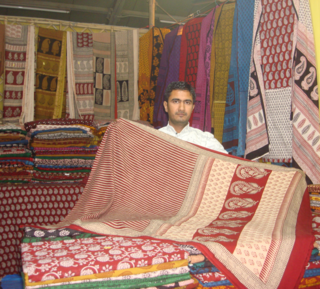 W
WDastkar is an Indian non-government organisation working with craftspeople across India, for promotion and revival of traditional crafts of India. It was founded in 1981 in Delhi, by a group of six women, including Laila Tyabji, its current chairperson.
 W
WThe East Zone Cultural Centre has its headquarters in Sector III, IB 201, IB Block, Salt Lake City, Kolkata, which is also known as the Cultural Capital of India and most commonly City of Joy is situated in the Indian state of West Bengal.It is one of the seven Zones established in India.The Indian states which are under the Eastern Cultural Zone are West Bengal, Jharkhand, Bihar, Odisha, Assam, Tripura, Manipur, Sikkim, Andaman & Nicobar Islands. This zone is home to three classical dance Odissi, Sattriya and Manipuri dance. Classical music Odissi music and semi-classical music Rabindra Sangeet.
 W
WGolaghat Amateur Theatre Society is a society for promoting performing arts, such as music, dance, and theatre; literature, such as poetry, novels and short stories; and visual arts, such as drawing, painting, photography, with more than 100 years of history representing Golaghat's and Assam's arts' industry. The society was formed at Golaghat in Assam to bring Assamese people closer to the world of performing and visual arts.
 W
WThe French Institute in India is part of the worldwide network of "French institutes". The Delhi office is the only one in India, the Pondichery antenna of the institute being a research facility more than a cultural centre.
 W
WKabir Kala Manch was a cultural organisation that was formed in Pune, Maharashtra, India, in the wake of the Gujarat riots in 2002. Through music, poetry and theatre, it aims to spread an anti-caste, pro-democracy message. It comprises students and young professionals who perform protest poetry and plays in slums and streets.
 W
WKala Academy is a prominent cultural centre run by the Government of Goa, in Goa, India. Situated at Campal, Panjim, it is registered as a society, and was started in February 1970. The building was designed by Charles Correa. It plays the role of being an "apex body to develop music, dance, drama, fine art, folk art, literature, etc. and thereby promote (the) cultural unity of Goa."
 W
WKannada Saahithya Parishath is an Indian non-profit organisation that promotes the Kannada language and its literature. Its headquarter is in the city of Bengaluru in the state of Karnataka, India. It strives to promote Kannada language through publishing books, organising literary seminars and promoting research projects. It also organises an annual conference on Kannada literature called Kannada Sahithya Sammelana. The current president of the parishat is Manu Baligar.
 W
WLamakaan is an open cultural center in Banjara Hills, Hyderabad, India. The non-profit organisation provides space for events such as arts, literature, theater, music, debates etc.
 W
WMaa Shakti is the name of the world record garba, which has been organized every year by Mr. Jayesh Thakkar and his NGO Samvedan Charitable Trust which runs the garba festival in the city of Vadodara.
 W
WMaulana Abul Kalam Azad Institute of Asian Studies is an autonomous research institute based in Calcutta. It is funded by the Ministry of Culture of the Government of India. It was founded on 4 January 1993. The foundation stone of the institute was laid where the new building now stands on 12 March 1993. It is devoted to the study of the life and works of Maulana Abul Kalam Azad, the eminent nationalist leader and India's first education minister, after whom it is named, and to the furtherance of Area Studies, with special reference to South Asia, Central Asia and West Asia, especially dealing with social, cultural, economic, political and administrative developments in Asia from the nineteenth century to the present. M.Phil.- and Ph.D.-level students of the University of Calcutta, Jadavpur University and Jawaharlal Nehru University, New Delhi are also associated with it.
 W
WThe National Museum Institute of the History of Art, Conservation and Museology (NMIHACM) is an autonomous institute, a seat of higher education in the fields of History, Conservation and Museology under the Ministry of Culture, Government of India. The Institute is a deemed university and is located at Janpath, New Delhi, within the premises of National Museum, New Delhi.
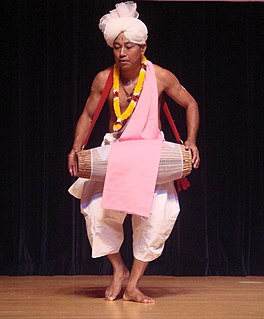 W
WNorth East Zone Culture Centre in Dimapur in Nagaland state is one of many regional cultural centres established by the Indian Government to preserve and promote traditional cultural heritage of India. The North East Cultural Zone is one of seven Cultural Zones of India defined and provided with administrative infrastructure by the Government of India.
 W
WNorth Zone Cultural Centre or NZCC in Patiala in Punjab state was first amongst several regional cultural centres established by Government of India to preserve and promote arts, crafts, traditions and cultural heritage of India.
 W
WPaschimbanga Bangla Akademi is the official regulatory body of the Bengali language in West Bengal, India. Modeled after Bangla Academy of Bangladesh and France’s Académie française, the Bangla Akademi was founded on 20 May 1986 in Kolkata to act as the official authority of the language and is entrusted with the responsibility of reforming Bengali spelling and grammar, compiling dictionaries, encyclopedias and terminologies and promoting Bengali language and culture in West Bengal. Though the Akademi has no enforcement power over their rules and regulations, yet they are widely accepted by the Governments of West Bengal and Tripura as well as a considerable number of private publishing houses and institutions like the Oxford University Press and the Ramakrishna Mission.
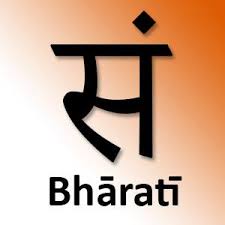 W
WSamskrita Bharati is a non-profit organisation working to revive Sanskrit. Sanskrit was a pan-Indian language in the Vedic and classical period but lost its place to its derivative regional dialects in modern India. Samskrita Bharati has its headquarters in New Delhi. According to their own figures, repeated often in their promotional literature, by 1998, 2.9 million people had attended the conversation camps.
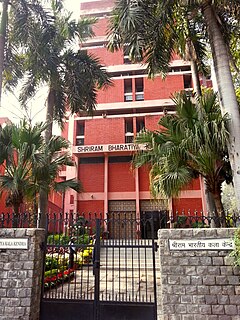 W
WShriram Bharatiya Kala Kendra (SBKK) is an Indian cultural institution which runs a noted school for music, dance and performing arts in New Delhi. It was founded by Sumitra Charat Ram in 1952, and imparts training in Indian classical dance styles and music, including Kathak, Bharatanatyam, Odissi, Chhau, Hindustani Classical music, both Vocal and Instrumental. It associated organisation is the Shri Ram Centre for Performing Arts at Safdar Hasmi Marg, in the Mandi House area, the cultural hub of Delhi, the centre includes a theater for the performing arts, a theatre repertory company and an acting school.
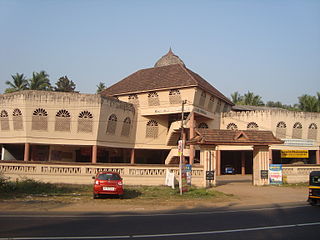 W
WThe Maha Kavi Moyinkutty Vaidyar Smarakam is a memorial building dedicated to Moyinkutty Vaidyar (1852–1892), often referred to as Mahakavi, who is historically considered one of the most renowned poets of the Mappila pattu genre of Malayalam language.
 W
WThe Society for the Promotion of Indian Classical Music And Culture Amongst Youth is a voluntary youth movement which promotes intangible aspects of Indian cultural heritage by promoting Indian classical music, classical dance, folk music, yoga, meditation, crafts and other aspects of Indian culture; it is a movement with chapters in over 300 towns all over the world. SPIC MACAY was established by Dr. Kiran Seth in 1977 at IIT Delhi.